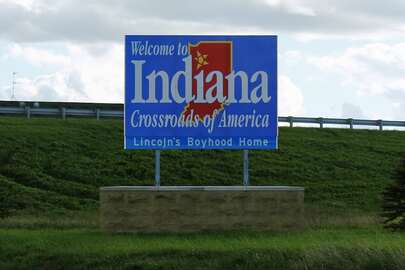 Institutions are the rules, norms or conventions which bind collective human activities, structure interactions between people and organizations, and provide the incentives for behavior. This is a typical academic definition of a concept which I have spent years researching and trying to relate to the broader world occupied by non-academics (i.e., public managers, students, media, consumers and producers of government services). Institutions matter. Just ask the FBI. Or, the International City/County Management Association. Or any lawyer. But they are a difficult topic to quantify, model and relate to practice. I used to be a political reporter covering state legislatures and governors. Every day, my editor would bust my chops about making arcane Capitol processes and conflict meaningful for a general audience. I have a similar frustration in academia. So, I guess this is my manifesto to try and do better. Starting this fall, I am re-organizing my research agenda along some lines which have been percolating in my head for several years. I am starting a new job at Indiana University and standing up a research lab organized around the analysis and synthesis of institutional and behavioral change over time. I’m calling the lab the Metropolitan Governance and Management Transitions (MGMT) Lab, and I’m seeding it with some funding from a National Science Foundation grant and a few other sources (hopefully many more in the future). The MGMT Lab will strive to advance our understanding of the drivers and barriers of local government transitions toward more sustainable development and resource management. I know that sounds a bit amorphous. But, there is a lot of nuance and complexity involved in the arena of urban sustainability. There are environmental issues, equity issues and economic issues. Scholars can spend their entire careers at the macro-, meso- or micro-levels of analysis. I want to do work that scales up and down. I am particularly interested in mid-sized and smallish communities which don’t have the resources of a Chicago or New York to hire chief data officers, create sustainability offices, or develop their own mini-Paris Accord climate-action plans. There are many wonderful academic research labs on universities devoted to advancing our theoretical understanding of local governance and sustainability. Rather than organizing this lab around a particular theoretical framework, it will be focused on advancing understanding of how communities a) formulate long-term sustainability strategies; b) develop the capacities to carry them out; and c) assess and improve performance. Think of it as a social science research station, in which the dynamism and experiences of local governments are studied over time. The actual research will involve a combination of sequential and embedded mixed-methods research designs that include collecting text-based data on local planning efforts, survey and interview data on management capacities and routines, case studies to strengthen causal inference, and survey experiments to test behavioral applications. Academic research has a lot to offer communities which fall along the entire spectrum of sustainability: those attempting to formulate long-term sustainability and resiliency strategies; those attempting to develop resources for implementation; and those attempting to track their progress and make adjustments. But to do so, I need to build collaborative partnerships and engage as many stakeholders as possible. For instance, two IU-based centers have agreed to be collaborative partners to this future work (once it’s funded): the IU Center for Rural Engagement, which collaborates with Indiana communities on pressing challenges; and the IU Environmental Resilience Institute, which develops forecasts, strategies and communication methods to enhance environmental resilience. Over time, the MGMT Lab will build infrastructure for future research by developing a comprehensive database of variables generated across the three phases. This dataset will facilitate predictive modeling and will be scalable for other states. Students will train in both qualitative and quantitative analysis. Research efforts and findings will be incorporated as learning modules into local government management classes. Down the road, community workshops, outreach and webinars will be in the works. I’m excited about the potential for this work, but I am also cognizant that this is a learning process. Hopefully, the fruits will be concrete policy prescriptions which can help struggling communities adapt and thrive in a rapidly changing world. In the meantime, feel free to reach out with any recommendations, concerns, opportunities: adeslatt@indiana.edu
4 Comments
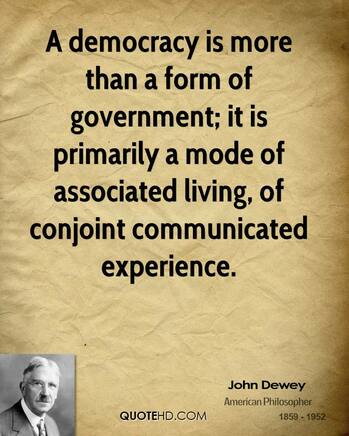 Public managers are unresponsive, routinized bureaucrats. Or, maybe they are attuned to social needs and equitable service-delivery. Managers resist change and love process. Or, they are problem-oriented, entrepreneurial agents interested in reforming their organizations. These contrasting stereotypes have been with us for some time. They shape mass and elite perceptions of public employees and drive wave after wave of government "reform." For four decades, researchers have studied the role local government managers play in shaping organizational missions, objectives and activities. As Jered Carr (2015) noted in his Public Administration Review literature synthesis, the consensus view is that the council-manager form of government does influence public policy choices at the margins. Empowered managers steer the ship of state toward a more equitable distribution of resources in some contexts. But does this knowledge have any practical use? Does it help managers make decisions? Does it help academics address the “big questions” of how to improve governance? These are questions researchers interested in management and governance regularly revisit, particularly in these troubled, politically tribalized times. One way I am trying to develop a “general theory” of managerial behavior (O’Toole and Meier 2014) is by exploring relationships among institutional arrangements, organizational context, and strategic management. This involves identifying when managers may shift between proactively or defensively positioning organizations to respond to major threats. In an article recently published in Policy Studies Journal, I describe this concept as “managerial friction” and show how it is measurable through incremental and punctuated changes in land-use policy (Deslatte 2018). The idea is that public managers have some ability to move policy processes out of incrementalism, even when bureaucratic lethargy acts as a drag (Deslatte, Tavares, and Feiock 2016). Studying Florida comprehensive plan amendments over a turbulent time period (2002-2010), the study synthesized theories of political markets and punctuated policy change to explain why local government managers may shift land-use management strategies to capture desirable growth or stave off undesirable development. Those of us who study policy and management are quite effective idea appropriators. This idea of punctuated policy change borrows heavily from evolutionary biology. But there are always limits to this kind of borrowing. Prindle (2012) cautioned scholars appropriating the concept of punctuated equilibrium from paleontology that, while stripping the metaphor of all content from the original theory of Darwinian speciation, they had never identified the mechanisms by which human choices were translated into mechanical outcomes “without losing the symbolic and emotional processing that is its substance” (p. 37). In other words, how do we build better bridges between macro-level outcomes and the micro-level behavioral processes underlying them? The concept of managerial friction — reflecting the agency of managers shifting between inward and outward strategies -- is one emotive construct that provides a bridge. But understanding how the cognitive biases of managers are aggregated into such organizational behavior presents a clear future path for this research. Ultimately, managerial friction must be further unpacked as a behavioral mechanism of human choice. One conclusion I came to at the end of this project was that this type of institutional research had probably run its course at this “macro” level without an infusion of brain-level insights. This isn’t a novel or new idea; it’s Herbert Simon stuff. In recent years, considerable efforts have been made within public administration to apply theories from social psychology and behavioral economics to the study of the minds of managers and citizens (Grimmelikhuijsen et al. 2017; James, Jilke, and Van Ryzin 2017). At the same time, criticism from within and outside the field has asserted public administration has shied away from asking “big questions” and become less of a player in important decisions of governance (Fukuyama 2004; Roberts 2017). Some have even cautioned about the emergence of a “schism” in the field between micro- and macro-level researchers, leading to competing conferences, journals, and networks for scholarly efforts (Moynihan 2018). I’d like to work from a premise that answering big questions and regaining a seat at the governance table requires a focus on “applied theory,” which attempts to solve real-world problems. Applied theory here is defined as an “epistemological tool box” approach scholars may use to explain administrative phenomena of practical importance (Bendor 2015). That is, researchers interested in applied theory are animated to identify problems, select theories, and take analytic approaches with pragmatism in mind. They are less concerned with cordoning themselves off into methodological tribes then in solving practical problems through whatever methodological tools are necessary or readily available to researchers. Insights from research need to scale, both up and down, in order to yield practical results. Public administration is by definition an interdisciplinary, explicitly normative, problem-oriented field. Theories of bureaucratic control, institutions, collaborative governance, public management, and decision-making each share an orientation toward what John Dewey might call “transactional realism.” This means they encompass both an ideal for what is desired as a society and an appreciation of what is realistically possible (Dewey 1984). When a program or policy fails to produce expected results, the explanation rests on a detailed examination of the program or policy design, simulations of outcomes under varying conditions or contexts, and a theory of policy design or administrative behavior which integrates outputs of the model with the specifics of the case under investigation. Growth management in Florida, for instance, is a tale of good and bad intentions, policy development, implementation failures, and the work of local governments and state-level actors to reach consensus on what outcomes were desirable or achievable for taming the growth machine in a mega-state. Evaluating the success of this massive, multi-decade policy effort requires analysis at many levels, and theories of the managerial role are only capturing part of the story. Nevertheless, one practical insight from my research is that local government managers -- through both strategic planning (the routines) and rapid adjustments to these plans along the way (the entrepreneurial side) -- held considerable sway over growth-management outcomes despite a lack of state funding and constant interference from politicians in Tallahassee. But was it successful? This requires a deeper dive into how stakeholders define success -- and I would argue now in hindsight, a different epistemological approach to generating knowledge. Ok, you’ve read this far, so please stay with me. Dewey’s pragmatism as a philosophy of science depends on an interaction or experience with the phenomena of interest. This is not a radical leap. Researchers interested in individuals, organizations, or institutional arrangements may all share a normative bent, an experiential orientation, and a concern with both structure and cognition. And at a basic level, they are all interested in problems associated with allocation of attention, information-processing, and decision-making. At its inception, followers of scientific management were focused on identifying principles to enhance organizational outcomes, and they immersed themselves in factory warehouses. Today, public management remains focused on performance, but is becoming more experimentally oriented and focused on the motivated reasoning and cognitive limits of managers, street-level bureaucrats, elected officials, and the public (Baekgaard et al. 2017; James and Van Ryzin 2017; Olsen 2017). There are many examples in the field which demonstrate the complex interconnections between micro- and macro-level phenomena. Theories of bureaucratic politics and control focus on how to preserve or enhance administrative accountability, recognizing the paradox that exercising greater control over bureaucracies can inhibit performance (Miller and Whitford 2016). Institutional theory focuses on how structure, rules, and norms influence organizational processes, choices, behaviors, and outcomes. But work examining ecologies of institutions and barriers to institutional collective-action have recognized the less-understood role that cognitive limitations, biases, groupthink and limited attention spans play in collaborative governance (Deslatte and Feiock 2018; Mewhirter, Lubell, and Berardo 2018). Normative decision theory has also undergone a transformation from developing heuristics or tools for humans to make more rational choices to today’s pivot to machine learning and artificial intelligence. But what overarching lessons for public administration can we tease out from these examples that attempt to bridge theories of the individual with organizational and/or institutional theory? What happens when our theoretical focus crosses over from micro to macro levels? How can we do this better? This leads me back to the much-maligned public manager. From my view, research on organizational strategies, performance, value-creation, and policy choices all dance around a logic of information-processing without enough attention to how brain-level phenomena can affect these outcomes. For instance, here’s an experimental study which was just published in the Journal of Behavioral Public Administration on citizen assessments of local government performance in a federal, energy efficiency program (Deslatte 2019). One practical insight from this study is that managers could do a much better job of selling their policy successes to the public. But this kind of practical insight rests on two deeper bodies of research -- institutional insights into how authority is distributed in governments and capacity limits, as well as behavioral work on partisan motivated reasoning -- which help explain why managers fail to do so. Here, institutional context isn't just a control variable, context is critical. For behavioral research to be practically useful, it needs to account for this context. It needs to test for effects of attitudes, beliefs and behaviors under varying institutional contexts. Likewise, institutional work depends on shared meaning and experience. As public administration develops the tools, training and methodological sophistication for broader, behavioral research, my own bias is that these efforts should remain tethered to the practical, problem-orientation from which our field originated. This will keep our pursuit of knowledge grounded in the applied. In other words, theory based on pragmatism or “transactional realism” means finding behavioral applications for our research regardless of whether we can fully elucidate the causal mechanisms. I’m not suggesting we stop trying to pursue general science; but, public administration researchers are not great in numbers, and our ability to develop scientific paradigms is limited. Here’s my belated toast to 2019 and to hoping we can successfully motivate our own pragmatism by bridging micro-and macro-approaches to the big questions of governance and management.  How does the proliferation of local governments in metropolitan regions impact the level of collaboration between them? In theory, more fragmentation creates more potential opportunities to find collaborative partners. However, political homophily -- the tendency of governments to only work with similar-looking governments -- is thought to hinder this influence. Despite the prominence of collaboration and collective action in the inter-governmental literature, we know little about how the collaborative mechanisms used to address sustainability issues are influenced by the configurations of horizontal, general-purpose governments and vertical, single-purpose governments. In a new paper in Publius I wrote with Richard Feiock, we combine national- and metropolitan-level analyses through a mixed-methods design to fill this lacuna. The first component examines how fragmentation influences choices of mechanisms for interlocal collaboration utilizing surveys of U.S. cities. The second component examines collaboration barriers between localities in a single metropolitan area through qualitative analysis of interviews conducted with twenty city managers in the Chicago metropolitan region, one of the most fragmented in the United States. These analyses offer evidence to support the conclusion that more fragmented regions may be better suited to overcome coordination risks and find more avenues for collaborative activities. However, preference heterogeneity within fragmented environments increases the risk of defection and thus offsets some advantages of polycentricity. What Do We Know About Urban Sustainability? A Research Synthesis and Nonparametric Assessment7/25/2018 Urban scholars have been focusing on local government sustainability policies and activities for more than a decade. But by and large, we have only just started to understand why government actors are engaging in the wide range of activities which fall under this definition. The literature itself can be somewhat unwieldy, attempting to either explain a broad swath of policy adoptions or isolated areas like land-use, energy, or climate-change mitigation or adaptation. In an Urban Studies article I wrote with co-author William Swann at the University of Colorado Denver, we attempt to advance our understanding of urban sustainability by synthesising extant empirical findings to gauge progress made towards developing theoretical insight, and then testing a nonparametric predictive model that helps overcome methodological challenges in this literature.
We find that although organisational capacity appears to be the most important predictor, the broad range of activities grouped under the banner of ‘urban sustainability’ rely on distinct causal mechanisms, and use of composite models and measures of sustainability may hinder theoretical advancement. In essence, the causal mechanisms which explain investment in community development or social inclusion do not necessary explain other areas of urban sustainability activity, such as efforts to reduce greenhouse gases. This calls for a deeper, and more nuanced examination of these policies -- which, we should add, is already underway by a number of researchers, and could help us to better understand whether local governance can hope to avert many of the greatest sustainability challenges we face in the decades ahead.  CAPE TOWN, South Africa -- I came to Cape Town anticipating a water shortage three years in the making. Here a week, it’s seldom stopped raining. The story of the world’s first modern metropolis to nearly run out of drinking water is an illustrative case study for cities everywhere confronted by the normalization of climate change impacts and the intransigence of its politics. If you’re reading this blog, you’re probably already familiar with the situation here. Hugging a corner of the south Atlantic coast expected to see less and less rainfall in the future, the 4.3 million people who live here were told last fall that water levels in its reservoirs were falling critically low. Absent a dramatic conservation or natural intervention, “Day Zero” would hit in April 2018, and the taps would be shut off. Citizens would be limited to 50 liters of water per day, and collect their rations at 200 distribution points. To the credit of the people, the businesses and the government, the conservation campaign – combined with the arrival of a rainy season – appear to have pushed back Day Zero to at least 2019. What impresses me the most about Cape Town’s example is the commonality of the causes and consequences of the crisis. There is a tendency in developed countries to view crises in the global South as a product of higher levels of poverty, a lack of development, income inequality and government corruption. Cape Town has some of the world's worst income equality, easily evident when you transition from the palatial estates of the winelands where the water reservoirs are located (and where locals are quietly excited the drought could produce more complex vintages) to the tin shacks of the suburban townships. But Cape Town's crisis could easily have been replicated in Los Angeles, São Paulo or Beijing. Even before the historic three-year drought which created the current crisis, Cape Town’s water supply system had been forecasting water shortages as a result of climate change and rapid development since the end of apartheid. Like many governments which are aware of their own long-term climate threats, even the best government planning is largely ignored until it becomes an existential threat. As Anna Taylor, a research fellow at the University of Cape Town noted, government planning alone is not enough when collaborative leadership between government officials and the public are necessary. Governments cannot simply regulate their way out of long-term resource challenges prompted by climate change, but need to enlist the co-productive power of their citizens and civic infrastructure. That criticism could be leveled at virtually any metropolitan region. What is required is fundamental institutional change, and that does not happen smoothly. Cities from Los Angeles and Miami to Melbourne have encountered urban water stress which is likely to accelerate as a result of hydrological change and spiked demand. These threats require policy changes as well as infrastructure development as cities transition to more sustainable water management. This means combining new sources, water-transfer infrastructure, policies and technologies to encourage wastewater reuse, stormwater infiltration and efficiencies. People and governments have to change their own behavioral norms and expectations of each other. One observation from recent research into such transitions is that they often require a focusing event. Cape Town has such a window. But climate adaptation requires creating a new normal, which is why cases like these can provide lessons for finding a new political equilibrium. While the immediate crisis may be over, I have heard locals complain in my week here about the refusal of the local government to back off plans to raise water rates and continue conservation efforts. For sure, the threats, tariffs on water use, and unbridled urbanization are likely to continue unabated as Capetonians adjust to the new normal of their more arid conditions. There are a number of research groups doing an excellent job examining the dynamics of Cape Town’s water crisis. It would be a mistake to think this work isn’t relevant to rest of the rapidly urbanizing world. Land use and development pose fundamental urban governance challenges around the world. As a reporter, I covered subsequent waves of growth management reforms from 2004-2011 in Florida, policy shifts which alternatively tightened and repealed planning requirements for local governments while lessening public-infrastructure finance obligations of developers. Florida’s growth management experience reflects seemingly incompatible impulses to maintain its image as a low-tax destination for retirees and businesses, power its economic engine via population gains and low-density development, while periodically acknowledging the central role that environmental resources play in its desirability to new residents and employers. Exploring this seemingly bipolar policy dilemma, I wrote a chapter for The Palgrave Handbook of Sustainability to trace the recent history of reforms in Florida’s growth management regime. The story of Florida's growth management experience often overlooks the role of local government policymakers who have experimented with a range of urban containment strategies. Utilizing surveys of local government planners from three time periods (2002, 2007, 2015), the chapter examines land use choices before and after the Great Recession and a state-level deregulatory reform of Florida’s once-heralded growth-management system in 2011 to examine variation in land-use regulations at the local level. The patterns have implications for future research and practice and suggest that the durability of land-management tools intended to stave off development and preserve open space may need to be carefully examined apart from smart growth approaches which assume development is inevitable.
Local Nonprofit Economic Development Corporations and their Implications for Sustainable Development4/28/2018 Local governments have been turning to Local Development Corporations for years to help streamline their job recruitment and development efforts. A criticism of these efforts is that turning over economic development to a third-party organization decreases transparency and runs the risk of institutionalizing private development interests over the well-being of the overall community. In this study published in Public Performance & Management Review, myself and co-authors Alicia Schatteman and Eric Stokan use surveys of U.S. cities at multiple time periods to examine the comparative use of nonprofit economic development corporations and their performance on smart-growth and social equity policy activities. We look at the two most common types of local nonprofit organizations — nonprofit Local Development Corporations (LDCs) and Community-Based Development Organizations (CBDOs) — and how they impact local government use of performance information and accountability mechanisms. In turning to policy outcomes, the use of LDCs is negatively associated with land use policies intended to advance social inclusion.
NIU is taking over the ASPA Chicago chapter meeting next week. I'll be discussing mixed-methods research on entrepreneurial local government managers at the ASPA Chicago Chapter's Brown Bag research panel on Feb. 16 at DePaul University. This is some work I have done with William Swann at University of Colorado, Denver using SEM and qualitative interview data to examine the environmental conditions, internal organizational characteristics, and strategies which foster improved sustainability performance.
Urban sustainability is a burgeoning focus for urban scholarship but rarely examined within the larger context of local government economic activities. But why should cities focusing on cutback management and competition for tax revenues be expected to devote all but the fleetest of attention to carbon footprints or metropolitan-wide environmental or social problems? In an Urban Affairs Review article, my colleague Eric Stokan and I use a resource dependence (RD) theoretical framework to conceptualize sustainable development as a pattern of contractual arrangements between governments and firms shaped by resource constraints. Utilizing survey data of U.S. cities and a Bayesian methodological approach, we present evidence that municipal job-recruitment efforts reduce the probability of observing an overall sustainability policy commitment. Cities which placed greater emphasis on retaining and developing existing businesses are also more committed to sustainability.
|
AuthorI work as an Assistant Professor at the O'Neill School of Public and Environmental Affairs at Indiana University Bloomington. There, I direct the MGMT Lab. Archives
January 2023
Categories |
||||||

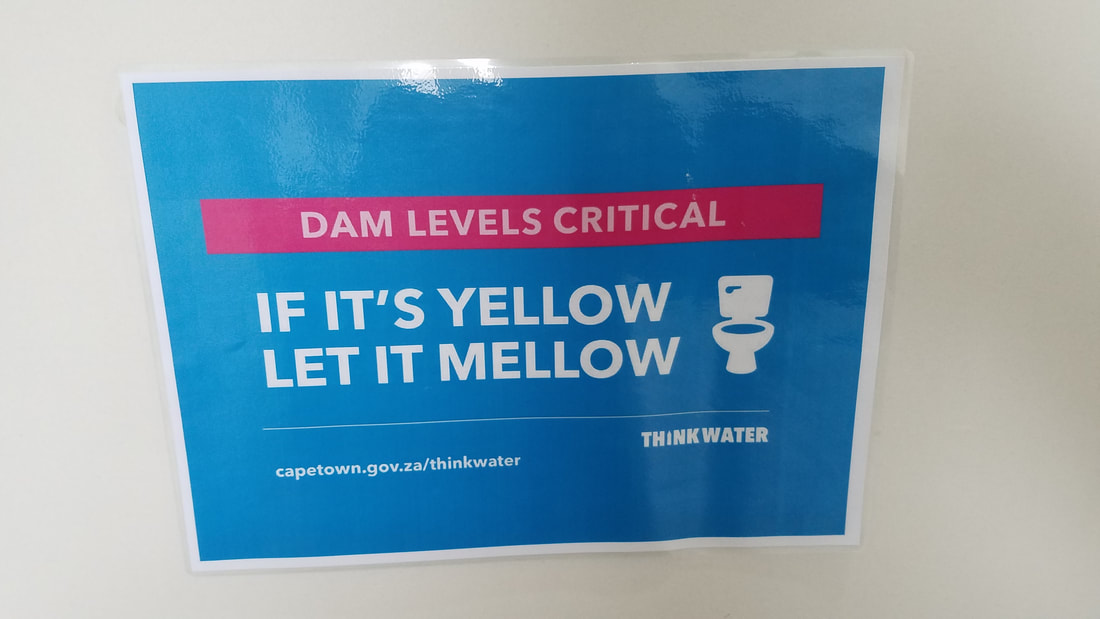


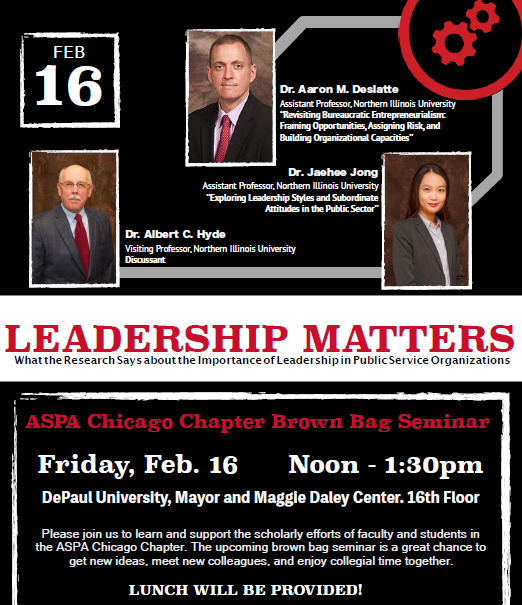

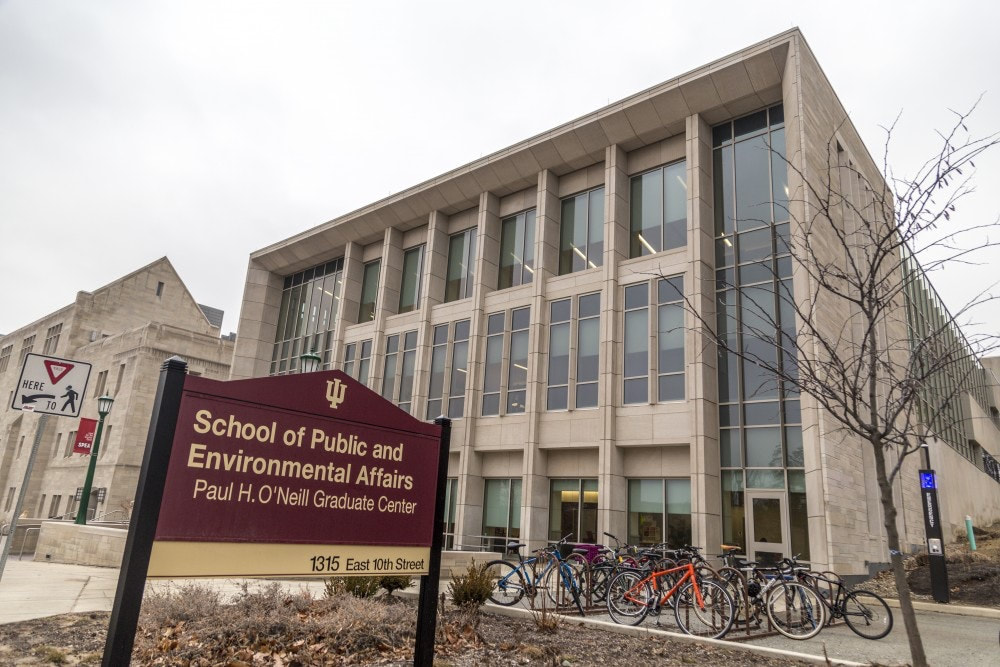
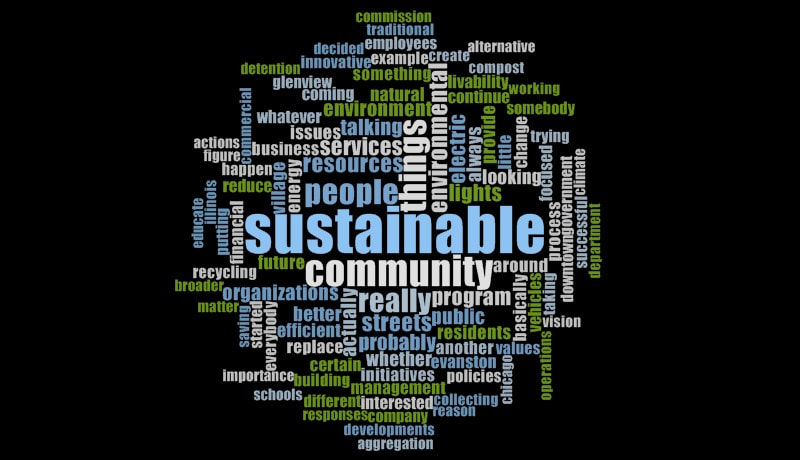
 RSS Feed
RSS Feed
